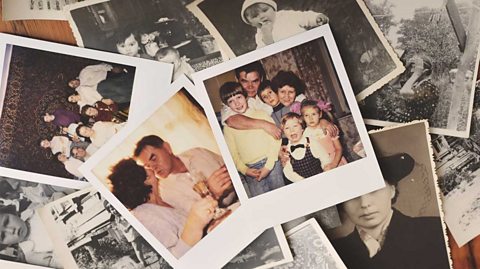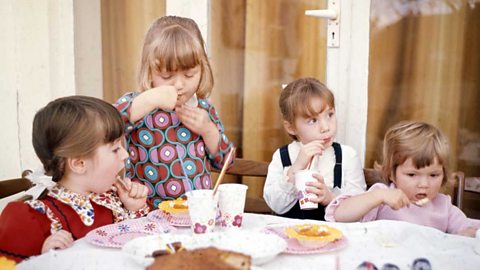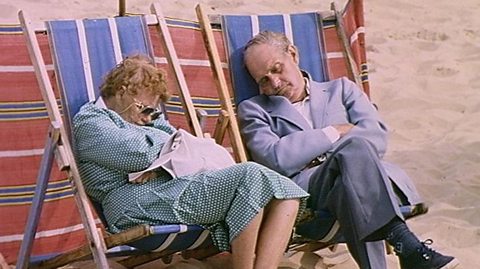Ever disagreed with a friend about a childhood memory? Maybe you couldn't agree on what happened in a film you saw, how it ended, or even the cinema where you saw it?
Even for significant personal experiences like birthdays or weddings, we sometimes have wildly different ideas of how they occurred.
But, why?
We spoke to neurologists, Dr Agam Jung and Dr Rumana Chowdhury, and retired chartered psychologist, Michael Bodden, to talk us through the flexibility of memories.

Are you a leveller or a sharpener?
According to Mr Bodden, in most cases everyone has “the same skeleton of the memory”, but someone “may add or reduce detail depending on the circumstances and the type of person they are."
“There are generally two different kinds of people - so-called levellers and sharpeners,” he said.
He explained levellers tend to recall things in a toned-down way. For instance, when recalling a memory, they might say it was a 'bit windy at the time', but sharpeners might introduce more detail, and say 'it was a howling gale'.
To understand how detail is lost or gained in memory, we need to look at how these memories are produced in our brains.
The science bit
In psychology, an episodic memory is a person’s unique memory of a specific event - like your first day of school, or a special birthday celebration.
Dr Chowdhury explained: “Our brains work as a network of different regions communicating with each other. Producing and storing an episodic memory crucially depends on two parts of the brain, the medial temporal lobes and the frontal lobes.”
The medial temporal cortex (the inner part of the brain) stores images of a recent personal experience, and the frontal lobe (the front part of the brain) establishes where an episodic memory comes from and the order in which things happened.
When an episodic memory, such as a birthday, becomes a long-term memory, the expressions of faces, the feelings of happiness and other sensory details are stored in other regions of the brain.
There are many reasons which affect how effectively the brain stores episodic memories, three of which are emotions, chronology, and sleep.

Emotions
Sometimes, the emotional intensity of an event can make us remember details of a memory with surprising clarity.
The medial temporal cortex stores recent memories, but is also tasked with putting back together the elements of a long-term memory that have been scattered around different parts of the brain.
The medial temporal cortex is partly made up of the amygdala, which Dr Jung describes as "the emotion centre".
Research from the University of Iowa suggests that if a memory is emotionally charged, the amygdala will more effectively retrieve the details of that experience and put them back together.
It is also believed that negative emotion is much more powerful in recalling past experience. So, if you can’t recollect the relief of passing an exam but remember heartbreak like it was yesterday, that might be why!

Chronology
Mr Bodden says that for episodic memory, “sometimes what you think you saw, turns into what you must have seen.”
In other words, when learning new information after an event has taken place, the brain produces a renewed version of the memory that makes sense with what a person knows now.
For example, if you witness a car go through a set of traffic lights before they changed to red, but later you hear that the car had gone through a red light, the frontal lobe of the brain may incorporate this new information to create a different chronology of the event.
This issue caused by the frontal lobe also explains why some people with particular forms of dementia may forget when and in what order they did something because the condition reduces the size of this part of the brain where the ordering of memory takes place.

Sleep
Dr Jung explained that sleep is believed to be the time of day where the “filing process”, not just for episodic memory, but all memory happens.
For both memories such as facts and conversations, the mind must have the time for this filing to be done by the respective parts of the brain so information can be retrieved later.
Dr Jung recommends good “sleep hygiene” - the practices and habits that are necessary to have good quality sleep - particularly when preparing for an exam so that information is consolidated in the brain.
In extreme cases of lack of sleep, humans can experience patchy memories which can become distorted, or even partly false.

Why does this understanding of memory matter?
These factors which affect our recall of memory go a long way in explaining why we seem to remember things differently.
Sometimes information given by a witness or victim of a crime can be different to what we expect because they are emotional, tired or have been given conflicting information.
By understanding that memory is flexible and can be influenced by several factors, we can better understand why we all appear to have slightly different versions of the past.
Why do we yawn? And four other bodily functions explained
We take a look at the weird things our bodies do on a daily basis.

Why do we hate Mondays?
Is there real science dictating our mood at the end of our weekend fun?

Why do some of us like gross things?
The surprising attraction of pimple popping and other 'disgusting' stuff
